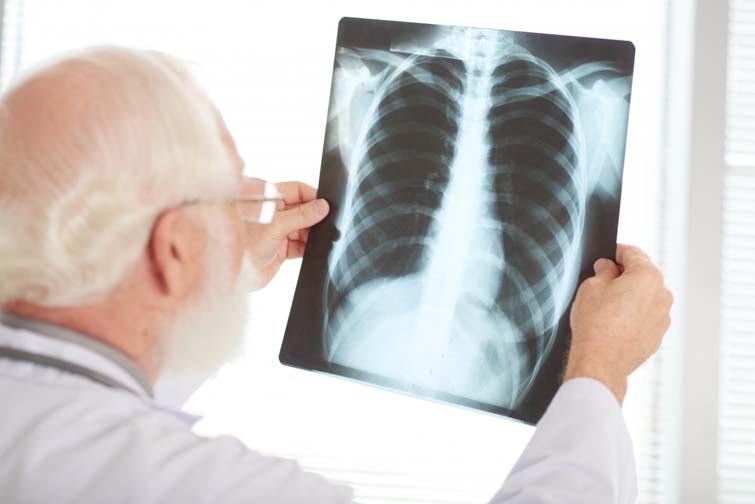
Bronchitis is a common respiratory condition that affects millions of people worldwide. It occurs when the bronchial tubes, which carry air to and from the lungs, become inflamed and irritated. While most cases of bronchitis are mild and can be managed at home, some situations may require urgent medical attention. In this article, we will delve into the different aspects of bronchitis, from its symptoms and causes to when it is essential to seek urgent care in Bridgeport, CT.
Bronchitis is a respiratory condition characterized by inflammation of the bronchial tubes, which are the airways that carry air to and from the lungs. When the bronchial tubes become inflamed, they produce excess mucus, leading to coughing and breathing difficulties. While viral or bacterial infections can cause bronchitis, it can also result from prolonged exposure to irritants, such as smoking or environmental pollutants.
Acute bronchitis is a temporary and often mild form of bronchitis. It is usually caused by viral infections, such as the common cold or flu viruses. The primary symptoms of acute bronchitis include a persistent cough, production of clear or white mucus, sore throat, low-grade fever, fatigue, and mild chest discomfort. In most cases, acute bronchitis can be managed at home with rest, fluids, and over-the-counter medications to alleviate symptoms. However, seeking urgent care in Bridgeport, CT, is advisable if symptoms worsen or persist beyond a week. Physicians can assess your condition, rule out bacterial infections, and recommend appropriate treatments to ensure a speedy recovery.
Chronic bronchitis is a more serious and long-lasting form of bronchitis. It is often associated with smoking or prolonged exposure to irritants, such as air pollution or chemical fumes. It is considered a part of chronic obstructive pulmonary disease (COPD), which is a progressive lung condition. Individuals with chronic bronchitis may frequently experience respiratory infections and have difficulty breathing due to narrowed airways and excessive mucus production. If you suspect you have chronic bronchitis or have been diagnosed with COPD, it is crucial to seek regular medical care at a center for urgent care in Bridgeport, CT, to manage symptoms effectively and prevent exacerbations.

A persistent cough is a key sign of mild bronchitis. The cough often starts as a dry, rough sound, but the bronchial tubes become inflamed as the condition progresses, leading to a ‘productive’ cough that brings up mucus. This action is your body’s in-built defense system, working to rid your airways of excess mucus and any irritants present. Though it usually doesn’t warrant an immediate trip to urgent care in Bridgeport, CT, this nagging cough can be disruptive, potentially sticking around anywhere from a few days to weeks.
A sore throat often goes hand in hand with mild bronchitis. This discomfort stems from the inflammation of the bronchial tubes, leading to a scratchy or sore sensation in the throat. You may also experience mild pain or have trouble swallowing, which can be particularly challenging during meals or when speaking. Even though it’s a significant discomfort, a sore throat doesn’t typically require an urgent visit to a healthcare facility in Bridgeport, CT. Simple remedies like over-the-counter throat lozenges or warm saltwater gargles can provide much-needed relief.
The body’s immune response to the viral or bacterial infection that causes bronchitis can slightly increase body temperature. A low-grade fever typically ranges from 100.4°F to 101.3°F (38°C to 38.5°C) and may fluctuate throughout the illness. The fever is usually not high enough to cause significant discomfort and can be managed with over-the-counter fever-reducing medications like acetaminophen or ibuprofen.
When a person’s immune system battles an infection, leading to inflammation of the bronchial tubes, it can result in a significant feeling of exhaustion and depletion. This fatigue is frequently accompanied by a general sense of weakness, which can disrupt everyday activities. During this period, it’s essential to get ample rest and stay well-hydrated to assist the body’s healing process. While fatigue typically doesn’t necessitate urgent care in Bridgeport, CT, it’s important to closely monitor one’s energy levels to ensure they don’t worsen.
Mild bronchitis can sometimes cause discomfort or a feeling of tightness in the chest. This sensation is due to the inflammation and swelling of the bronchial tubes, which can affect the airways’ normal functioning. The discomfort may worsen with coughing or deep breathing. While mild chest discomfort is usually not a cause for concern, if it becomes severe or is accompanied by difficulty breathing or significant pain, it is essential to seek urgent care in Bridgeport, CT.
The production of clear or white mucus is a common symptom of mild bronchitis. As the bronchial tubes become inflamed, they produce excess mucus as a protective response to expel irritants and pathogens. This mucus might come up when you cough, or you might notice it in your throat or nose. Clear or white mucus is normal in mild cases and shows that your body is doing its job to protect you. But if you start noticing thicker mucus that sticks around, it could be a sign of a secondary bacterial infection.

In severe cases of bronchitis, the cough can become intense and persistent, causing significant discomfort and disruption to daily activities. The cough may be productive, producing thick, discolored mucus, indicating a possible bacterial infection. The constant coughing can lead to exhaustion and strain on the chest and abdominal muscles.
If the cough becomes severe and shows no signs of improvement, seeking medical attention at an urgent care center in Bridgeport, CT, is crucial. Urgent care physicians can assess the severity of the cough, perform a thorough examination, and recommend appropriate treatments, such as bronchodilators or cough suppressants, to provide relief and aid in the healing process.
As bronchitis progresses or becomes severe, the body’s immune response may lead to the development of a high fever. A high fever is generally defined as a body temperature above 101°F (38.3°C). The fever is a sign that the body is fighting off the viral or bacterial infection causing bronchitis. In some cases, a high fever may indicate a secondary infection that requires urgent medical attention and possible antibiotic treatment. If an individual experiences a high fever, particularly if it is accompanied by other severe symptoms, seeking medical evaluation at a center for urgent care in Bridgeport, CT, is essential. Urgent care physicians can assess the cause of the fever, provide appropriate fever-reducing medications, and determine if further investigations or treatments are necessary.
Inflammation and swelling of the bronchial tubes may result in discomfort and a feeling of pressure in the chest. Breathing could become challenging, and chest pain might intensify during coughing or deep breaths. This symptom can be alarming, as it could hint at complications such as pneumonia or a worsening bronchitis condition. If you’re experiencing significant chest pain or tightness, it’s essential to get an urgent medical evaluation at an urgent care center in Bridgeport, CT. Urgent care physicians can perform a thorough assessment, order necessary tests, and provide appropriate treatments to manage chest pain and address any underlying issues.
Severe bronchitis can lead to significant inflammation and narrowing of the bronchial tubes, making it challenging for air to pass through the airways. This can result in shortness of breath, where individuals may feel like they are not getting enough air or struggle to breathe deeply. Shortness of breath can be distressing and may worsen with physical activity or during severe coughing episodes. It is crucial to seek medical attention at a center for urgent care in Bridgeport, CT, if shortness of breath becomes severe or persistent.
Wheezing—a distinctive whistling or high-pitched sound during breathing—is a common symptom when the airways get narrowed or constricted. In severe bronchitis cases, you might experience wheezing due to inflammation and excessive mucus production in your bronchial tubes. This could be a sign of bronchospasm, a condition where the muscles around the airways tighten. If you’re dealing with wheezing, seeking immediate medical help at an urgent care center in Bridgeport, CT is important. This symptom may indicate the need for bronchodilators or other respiratory medicines to ease the constriction and make breathing easier. Physicians at centers for urgent care in Bridgeport, CT, can assess the severity of wheezing, perform lung function tests, and recommend appropriate treatments to address this symptom and manage bronchitis effectively.
As bronchitis progresses or if there is a secondary bacterial infection, the mucus produced by the inflamed bronchial tubes may change color to yellow or green. The change in mucus color signifies an increase in white blood cells, which are part of the body’s immune response to infection. Yellow or green mucus production may indicate the presence of a bacterial infection that requires prompt medical attention. Seeking urgent care in Bridgeport, CT, is crucial to determine if antibiotic treatment is necessary to manage the infection effectively. Centers for urgent care in Bridgeport, CT, can assess mucus color, perform diagnostic tests if needed, and prescribe treatment methods to address the infection and support the healing process.

Viral infections are the most common cause of bronchitis. Influenza viruses, rhinoviruses, and respiratory syncytial virus (RSV) are among the viruses responsible for triggering bronchitis. These viruses can spread through respiratory droplets from an infected person through coughing, sneezing, or close contact. When these viruses enter the respiratory tract, they can infect the lining of the bronchial tubes, leading to inflammation and the characteristic symptoms of bronchitis.
Bacterial infections can also cause bronchitis, although they are less frequent compared to viral causes. Bacterial bronchitis may occur as a complication of viral bronchitis or in individuals with weakened immune systems. Bacterial agents such as Streptococcus pneumoniae, Haemophilus influenzae, and Moraxella catarrhalis are known culprits of bacterial bronchitis.
Cigarette smoking is a significant risk factor for developing bronchitis, especially chronic bronchitis. The harmful chemicals in tobacco smoke can damage the bronchial tubes and impair the function of the cilia. These tiny hair-like structures help clear mucus and irritants from the airways. As a result, smokers are at a higher risk of developing chronic bronchitis, a type of chronic obstructive pulmonary disease (COPD).
Exposure to high levels of air pollution, both indoor and outdoor, is a significant risk factor for developing bronchitis. Inhaling pollutants such as particulate matter, vehicle emissions, industrial chemicals, and tobacco smoke can irritate the bronchial tubes and lead to inflammation. People living in areas with bad air quality, congested urban settings, or workplaces exposed to hazardous substances are at an increased risk of developing bronchitis.
Age plays a significant role in the risk of developing bronchitis. Particularly, young children under five years of age are more vulnerable. Their immune systems are still developing, and their airways are smaller, making them more susceptible to respiratory infections. Likewise, older adults may have weakened immune systems and decreased lung function, making them more susceptible to infections like bronchitis.
Individuals with a history of asthma or chronic obstructive pulmonary disease (COPD) are at higher risk of developing bronchitis. These chronic respiratory conditions already cause inflammation and narrowing of the airways. When bronchitis occurs on top of existing respiratory issues, it can exacerbate symptoms and lead to more severe respiratory distress.


Adults aged 65 and older face a higher risk of developing severe bronchitis. This is due to age-related changes in their respiratory system and weakened immune response. Bronchitis in older adults can lead to more significant respiratory distress and complications. For this vulnerable population, seeking urgent care in Bridgeport, CT, is crucial if symptoms of bronchitis, such as persistent cough, shortness of breath, or high fever, are experienced. Urgent care physicians can promptly evaluate and manage bronchitis, provide appropriate treatments, and monitor for potential complications to ensure a speedy recovery and prevent further health issues.
Children under the age of 2 have developing immune systems and smaller airways, making them more susceptible to respiratory infections like bronchitis. In infants and young children, bronchitis can present symptoms such as difficulty breathing, wheezing, and fever. If a young child exhibits signs of bronchitis, seeking urgent medical evaluation at an urgent care center in Bridgeport, CT, is essential for proper assessment and treatment. Urgent care physicians are experienced in managing pediatric respiratory conditions and can provide the necessary care to alleviate symptoms and monitor the child’s health closely.
Individuals with underlying respiratory conditions, such as asthma or chronic obstructive pulmonary disease (COPD), are at an increased risk of bronchitis. Bronchitis can exacerbate symptoms and lead to more severe respiratory distress for those with pre-existing respiratory conditions. Seeking urgent care in Bridgeport, CT, is crucial if bronchitis symptoms worsen or new respiratory symptoms arise.
Patients undergoing chemotherapy have weakened immune systems, making them more susceptible to infections, including bronchitis. Any respiratory symptoms should be taken seriously for individuals receiving chemotherapy, as infections can be severe and potentially life-threatening. Seeking urgent medical attention at an urgent care center in Bridgeport, CT, is essential for prompt evaluation and management.
Individuals who are on immunosuppressive medications, like those who’ve had an organ transplant or have autoimmune conditions, face a higher risk of infections, including bronchitis. These drugs lower the body’s immune response, making it harder to combat infections. For those on immunosuppressants, it’s crucial to take any respiratory symptoms seriously to avoid severe complications. Timely evaluation and management at an urgent care center in Bridgeport, CT, is essential for these individuals.
Upon arrival, patients experiencing severe bronchitis symptoms are triaged and evaluated promptly by urgent care physicians in Bridgeport, CT. They assess the patient’s medical history, vital signs, and the severity of their symptoms to determine the appropriate course of action.
For patients experiencing significant shortness of breath or difficulty breathing, urgent care in Bridgeport, CT, may provide oxygen therapy to ensure adequate oxygen supply and alleviate respiratory distress. Oxygen therapy can help improve lung function and ease breathing difficulties during acute bronchitis attacks.
Urgent care in Bridgeport, CT, may administer bronchodilator medications through a nebulizer to help open up the airways and relieve bronchial constriction. Nebulized medications are particularly effective for patients experiencing wheezing and difficulty breathing.
In cases of severe bronchitis exacerbation, urgent care physicians in Bridgeport, CT, may prescribe inhaled corticosteroids to reduce inflammation in the bronchial tubes and lungs. These medications can help manage the symptoms and promote faster recovery.
Severe bronchitis attacks may cause dehydration due to increased fluid loss from fever and respiratory efforts. Centers for urgent care in Bridgeport, CT, may administer intravenous fluids to ensure proper hydration and support the body during the acute phase of the illness.
While viral infections cause most cases of bronchitis and do not require antibiotics, bacterial infections may be present in certain situations, especially in severe cases. Urgent care physicians in Bridgeport, CT, will assess the patient’s condition and prescribe antibiotics if necessary.

When seeking urgent care in Bridgeport, CT, DOCS Urgent Care & Primary Care – Bridgeport is a reliable choice. Our commitment to delivering exceptional care, experienced medical team, and modern facilities make us the most trusted provider for your urgent medical needs. Whether you require treatment for bronchitis or other conditions, you can rest assured that we at DOCS Urgent Care & Primary Care – Bridgeport will provide the attentive and high-quality care you deserve.

During this surge in COVID-19 cases, our primary focus is meeting the high demand for tests, and we are seeing higher than usual wait times. This means we are unable to answer most phone calls. Please know that our teams are working very hard during this time to care for as many patients as safely as possible. Please click the button below for answers to common questions. We appreciate your understanding.